
Cajanus albicans
(MRP Inclusive of all taxes)
- Shipping ₹79 for entire order
- Dispatch in 7 days
- Country of origin: India

(MRP Inclusive of all taxes)
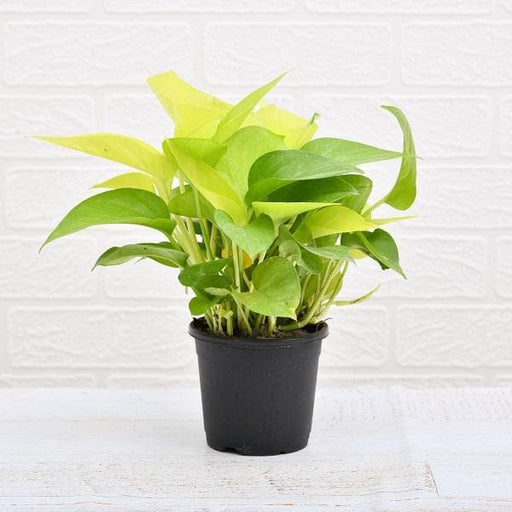 Save 29%
Save 29%
Air Purifier Money Plant with Pot The Air Purifier Money Plant, also known as Pothos or Epipremnum aureum, is a stunning indoor plant that...
View full details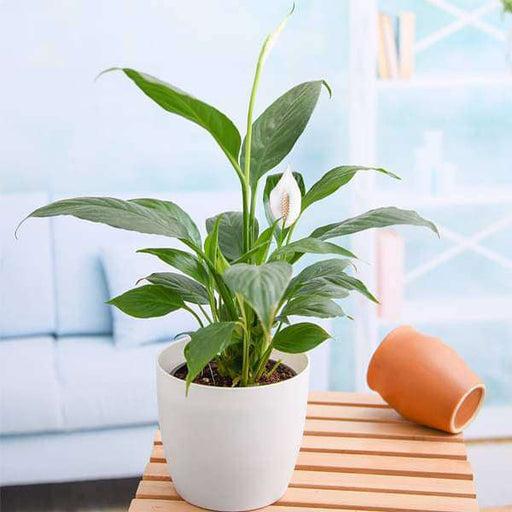
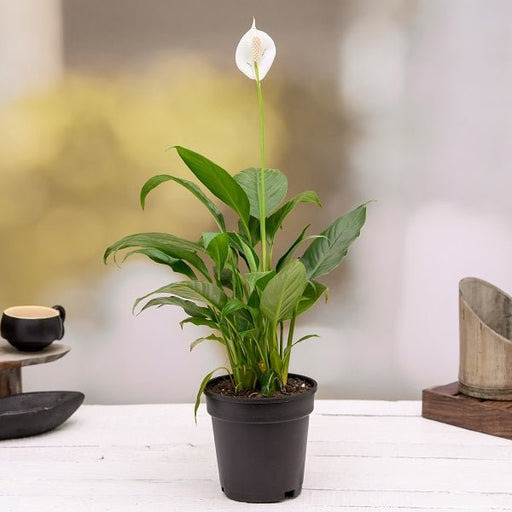 Save up to 15%
Save up to 15%
Peace Lily, Spathiphyllum - Plant The Peace Lily, scientifically known as Spathiphyllum, is a stunning houseplant celebrated for its elegant white...
View full details
 Save 25%
Save 25%
Jasminum sambac, Mogra, Arabian Jasmine - Plant Jasminum sambac, commonly known as Mogra or Arabian Jasmine, is a fragrant flowering plant...
View full details
 Save 18%
Save 18%
Combo Constituents Includes the Parijat Tree (Night-Flowering Jasmine), a culturally significant plant with fragrant flowers. Description The Pari...
View full details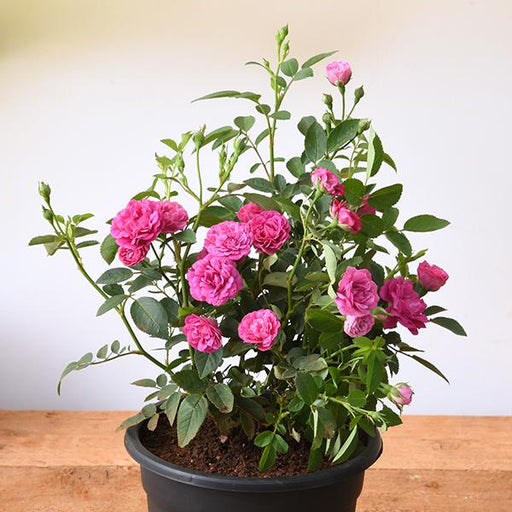
 Save 25%
Save 25%
Miniature Rose, Button Rose (Any Color) - Plant The Miniature Rose, also known as the Button Rose, is a charming and compact flowering plant that ...
View full details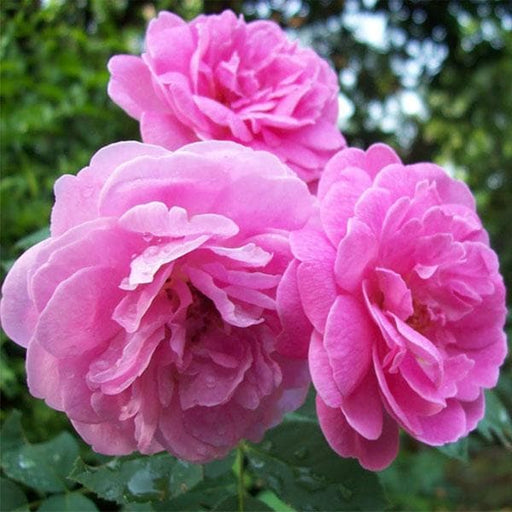 Save 25%
Save 25%
Damascus Rose, Scented Rose (Any Color) - Plant The Damascus Rose, also known as Rosa damascena, is a timeless symbol of beauty and romanc...
View full details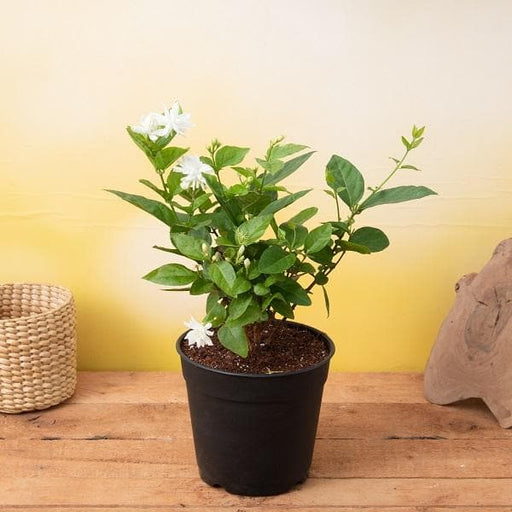
 Save 17%
Save 17%
Beautiful Fragrant Mogra, Arabian Jasmine Plant with Pot The Beautiful Fragrant Mogra, also known as Arabian Jasmine (Jasminum sambac), is...
View full details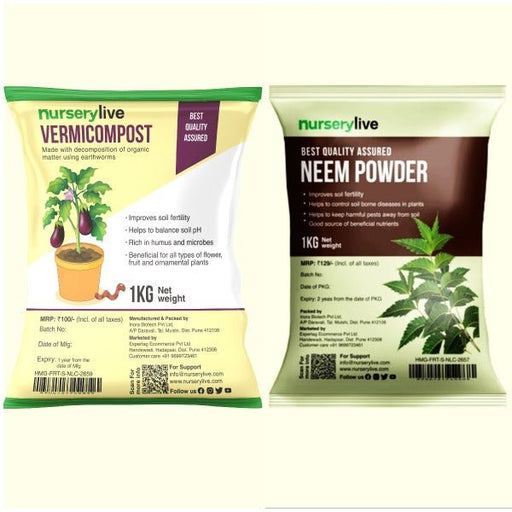 Save 15%
Save 15%
Pack of Vermicompost and Neem Cake for House Plants Transform your indoor garden with our premium Pack of Vermicompost and Neem Cake, spec...
View full details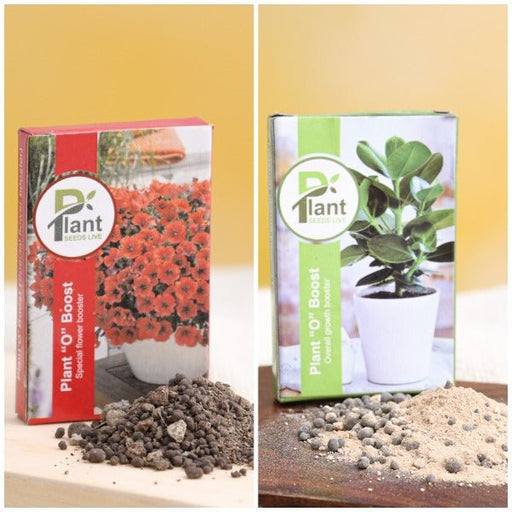
Pack of Plant Growth and Flower Boosters Unlock the full potential of your garden with our Pack of Plant Growth and Flower Boosters! This ...
View full details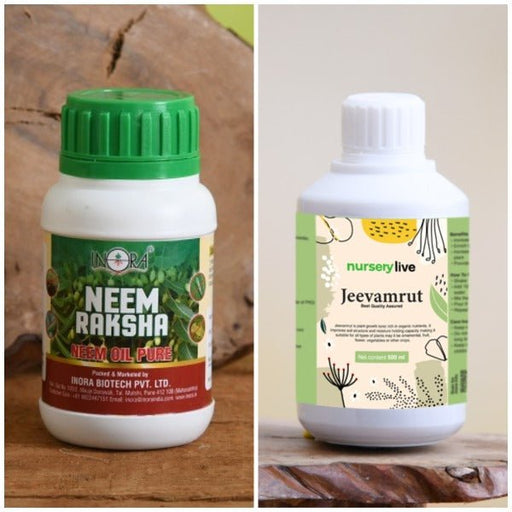 Save 38%
Save 38%
Combo of Jeevamrut and Neem Raksha for Easy Growth and Protection of Houseplants Transform your indoor garden with our exclusive combo of ...
View full details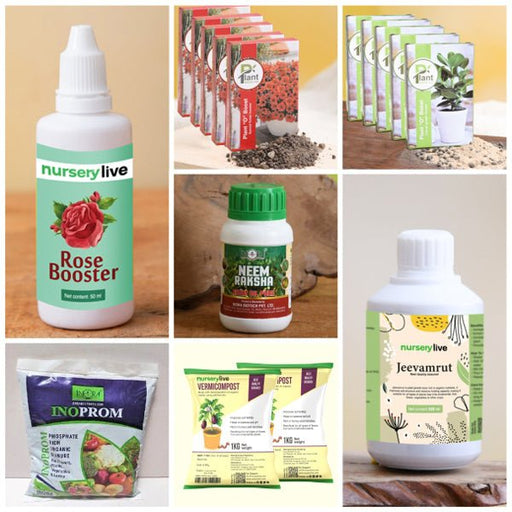 Save 22%
Save 22%
Plant Nutrients Kit (Pack of 16) for a Healthy Garden Transform your garden into a lush paradise with our Plant Nutrients Kit, featuring 1...
View full details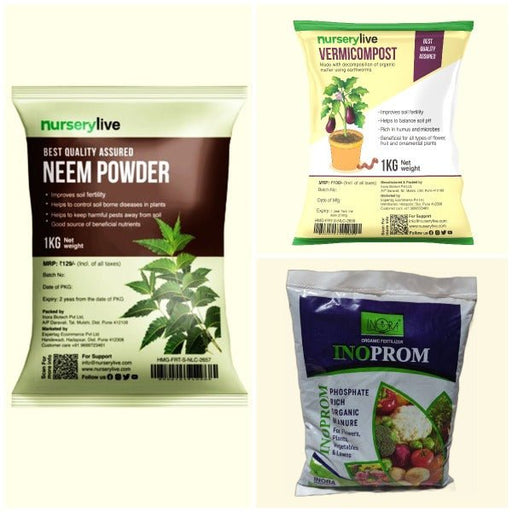 Save 16%
Save 16%
Combo of Top Plant Fertilizers Elevate your gardening game with our exclusive Combo of Top Plant Fertilizers, featuring two bags of premiu...
View full details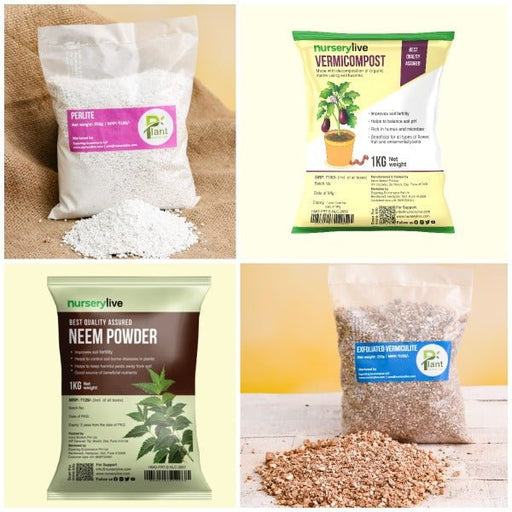 Save 24%
Save 24%
Pack of 4 Additives to Make Soil Healthy and Nutrient Rich Transform your garden into a thriving ecosystem with our Pack of 4 Additives de...
View full details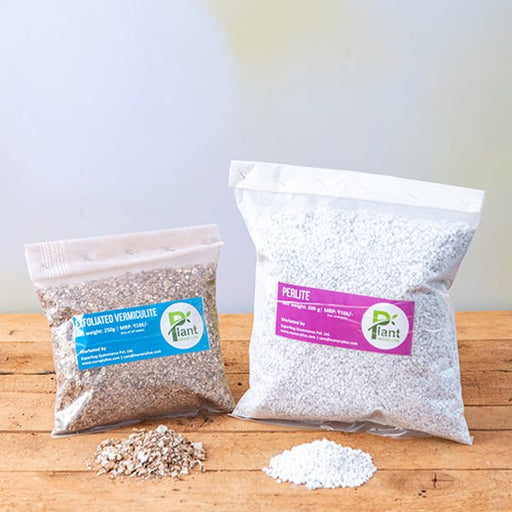 Save 30%
Save 30%
Transform your gardening experience with our premium Combo of Perlite and Vermiculite. This unique blend is designed to enhance soil aeration and ...
View full details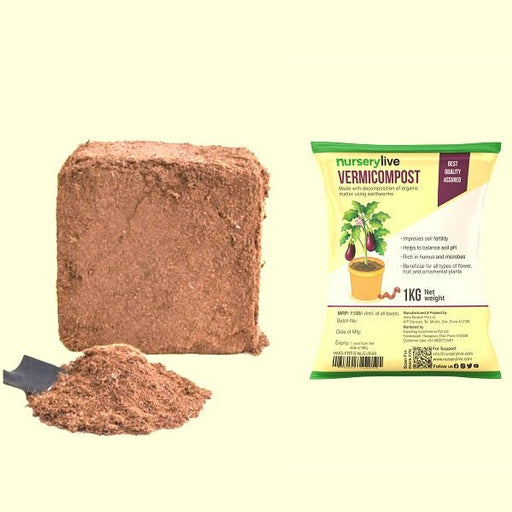 Save 27%
Save 27%
Combo of 2 Vermicompost and Cocopeat - Enrich Your Soil Naturally! Transform your garden into a thriving ecosystem with our Combo of 2 Ver...
View full details
 Save 35%
Save 35%
Best 6 Plants for Perfect Indoor Garden Transform your living space into a lush oasis with our curated collection of the Best 6 Plants for a...
View full details
 Save up to 50%
Save up to 50%
Mini Succulent Garden Pack Transform your space with our Mini Succulent Garden Pack, featuring a delightful collection of 4 any variety beautiful s...
View full details
 Save 30%
Save 30%
5 Best Fragrant Plants Transform your garden or indoor space into a fragrant paradise with our curated selection of the 5 Best Fragrant Plants. Th...
View full details
 Save 24%
Save 24%
Set of 2 Bonsai Looking Grafted Adeniums Transform your indoor or outdoor space with our exquisite Set of 2 Bonsai Looking Grafted Adenium...
View full details Save 45%
Save 45%
Top 4 Die Hard Succulents Pack Transform your indoor or outdoor space with our Top 4 Die Hard Succulents Pack, featuring a curated selecti...
View full details
 Save 30%
Save 30%
5 Best Indoor Plants Pack Transform your living space into a lush oasis with our '5 Best Indoor Plants Pack.' This carefully curated collection fe...
View full details
 Save 25%
Save 25%
Set of 4 Evergreen Air Purifier Plant Pack Transform your indoor space into a lush, green oasis with our Set of 4 Evergreen Air Purifier Pla...
View full details| SrNo | Item Name |
|---|---|
| 1 | Cajanus albicans |
Cajanus albicans, commonly known as the White Pigeon Pea, is a leguminous plant native to tropical regions. This hardy perennial is celebrated for its nutritional value, drought resistance, and ability to improve soil fertility through nitrogen fixation. With its delicate white flowers and bushy growth, it not only enhances the aesthetic appeal of gardens but also serves as a sustainable crop for food security.
What makes Cajanus albicans special is its dual role as both a food source and a soil enhancer. Rich in protein, fiber, and essential nutrients, it is a staple in many diets across Asia and Africa. Its ability to thrive in poor soils while enriching them makes it an invaluable asset in sustainable agriculture.
One of the standout features of Cajanus albicans is its remarkable adaptability. It can flourish in various soil types and withstand prolonged dry spells, making it an ideal choice for regions facing climate challenges. Additionally, its deep root system helps prevent soil erosion, contributing positively to the environment.
This tree isn’t just a pretty face in the botanical world; it’s a multitasking marvel! Known for its nitrogen-fixing abilities, Cajanus albicans enriches the soil while providing shade and shelter for other plants. It’s like the friend who brings snacks to a party and helps with the cleanup. Plus, its leaves are a feast for livestock, making it a farmer’s best buddy. Who knew a tree could be so generous?
Picture a tropical paradise where Cajanus albicans thrives! This tree loves warm, humid climates and can often be found in the lush landscapes of Africa and Asia. It’s the ultimate sunbather, soaking up rays while providing a cozy home for various critters. If you’re looking for a tree that enjoys a good climate and a bit of company, this is the one to invite to your garden party.
From traditional medicine to sustainable agriculture, Cajanus albicans is the Swiss Army knife of the plant kingdom. Its leaves can be brewed into herbal teas, while its seeds are a protein-packed snack for both humans and animals. Farmers adore it for its ability to improve soil health, making it a go-to for eco-friendly farming practices. Who knew a tree could be so versatile? It’s like the tree version of a Renaissance man!
If you’re looking for a tree that doesn’t believe in taking its sweet time, Cajanus albicans is your go-to! This fast-growing wonder can reach impressive heights in just a few years. It’s the overachiever of the tree world, always striving for more. Just be careful not to blink; you might miss its rapid transformation from sapling to towering beauty!
Cultivating Cajanus albicans is like hosting a low-maintenance pet. It thrives in well-drained soil and loves a good dose of sunlight. Just plant it, water it occasionally, and watch it flourish! It’s the perfect tree for those who want to feel like a gardening guru without the stress. Plus, it’s drought-resistant, so you can take a vacation without worrying about your leafy friend.
If pests were a party, Cajanus albicans would be the bouncer! This tree boasts impressive pest resistance, making it less appealing to those pesky insects. It’s like having a built-in security system for your garden. With Cajanus albicans around, you can enjoy a pest-free environment while your plants thrive. Who knew a tree could be such a tough cookie?
Move over kale; Cajanus albicans is here to steal the spotlight! The leaves and seeds of this tree are packed with nutrients, offering a healthy dose of protein, vitamins, and minerals. It’s like nature’s own superfood, ready to boost your diet. Whether you’re whipping up a salad or a smoothie, adding Cajanus albicans can elevate your culinary game. Who knew a tree could be so delicious?
If soil could talk, it would sing praises for Cajanus albicans! This tree is a champion at improving soil quality, thanks to its nitrogen-fixing abilities. It’s like a spa day for your garden, rejuvenating the earth and making it more fertile. With Cajanus albicans around, your plants will thank you for the nutrient-rich environment. Who knew a tree could be such a soil savior?
Cajanus albicans isn’t just a pretty tree; it’s also a natural pharmacy! Traditionally, its leaves and seeds have been used in various remedies, from treating fevers to aiding digestion. It’s like having a doctor in your backyard, ready to prescribe herbal solutions. Who knew that a tree could be both a beauty and a healer? Talk about a dual threat!
Cajanus albicans is the eco-warrior of the tree world! By improving soil health and providing habitat for wildlife, it plays a crucial role in maintaining biodiversity. It’s like the superhero of the forest, fighting against soil erosion and promoting sustainable practices. With Cajanus albicans in your garden, you’re not just planting a tree; you’re making a positive impact on the environment. Who knew a tree could be so heroic?
Looking to add a touch of elegance to your garden? Cajanus albicans is the perfect candidate! With its lush foliage and impressive height, it makes a stunning focal point. It’s like the fashionista of the plant world, always turning heads and making a statement. Whether you’re designing a tropical oasis or a serene retreat, this tree will elevate your landscaping game. Who knew a tree could be so stylish?
Cajanus albicans, also known as white pigeon pea, is a leguminous plant that’s not just a pretty face. It’s a nutritional powerhouse, packed with protein and fiber, making it a favorite among health enthusiasts. Plus, it’s a great soil enhancer, so it’s like the plant version of a multitasking superhero!
Cajanus albicans loves warm climates and can be found strutting its stuff in tropical and subtropical regions. From Africa to Asia, this plant is a global citizen, thriving in various soils. It’s like the world traveler of legumes, always ready to take root wherever it can find sunshine!
Cajanus albicans is not just a legume; it’s a health guru! Rich in protein, fiber, and essential nutrients, it supports digestion, boosts immunity, and keeps your heart happy. Eating it is like giving your body a high-five, ensuring you stay fit and fabulous while enjoying its delicious taste!
Cooking Cajanus albicans is as easy as pie—if pie were a nutritious legume! Simply soak the peas, boil them until tender, and toss them into salads, soups, or curries. You can even mash them for a delightful spread. It’s versatile, so get creative and let your culinary imagination run wild!
Absolutely! Cajanus albicans is the perfect plant for your home garden. It thrives in well-drained soil and loves a sunny spot. Just plant the seeds, water them, and watch them grow. Soon, you’ll have your own supply of this nutritious legume, making you the envy of all your gardening friends!
Cajanus albicans is like Mother Nature’s best friend! It improves soil fertility through nitrogen fixation, reducing the need for chemical fertilizers. Plus, it helps prevent soil erosion. So, by growing this legume, you’re not just feeding yourself; you’re also giving a big hug to the environment!
The culinary possibilities with Cajanus albicans are endless! From hearty stews and spicy curries to refreshing salads and dips, this legume can do it all. It’s like the chameleon of the kitchen, adapting to any flavor profile. Get ready to impress your taste buds and your dinner guests!
Oh, absolutely! Cajanus albicans is a vegetarian’s best friend, packed with protein and essential nutrients. It’s a fantastic meat substitute, making it a staple in plant-based diets. So, whether you’re a full-time herbivore or just dabbling, this legume will keep your meals exciting and nutritious!
Cajanus albicans stands out in the legume crowd with its unique flavor and impressive nutritional profile. While it shares the protein-rich benefits of other legumes, its versatility in cooking and soil enhancement makes it a superstar. It’s like the cool kid in school that everyone wants to hang out with!
Cajanus albicans is a weight-loss ally! Low in calories but high in fiber and protein, it keeps you feeling full longer. Incorporating it into your meals can help curb those pesky cravings. So, if you’re looking to shed some pounds, this legume is here to support your journey—one delicious bite at a time!
To keep Cajanus albicans fresh and fabulous, store it in an airtight container in a cool, dry place. If you’ve cooked it, refrigerate it in a sealed container for up to a week. Just remember, like all good things, it’s best enjoyed fresh, so don’t let it linger too long!
While Cajanus albicans is generally safe, overindulgence can lead to some digestive drama, like gas or bloating. Moderation is key! If you’re new to legumes, start slow and let your tummy adjust. After all, we want your experience to be delightful, not a legume-induced comedy show!